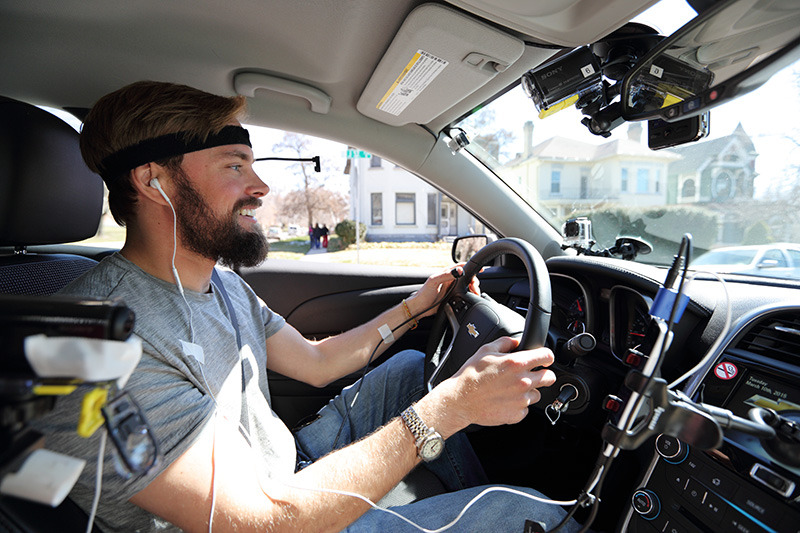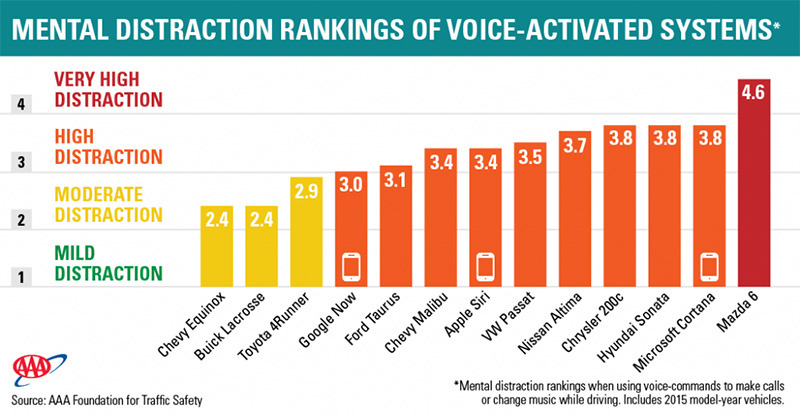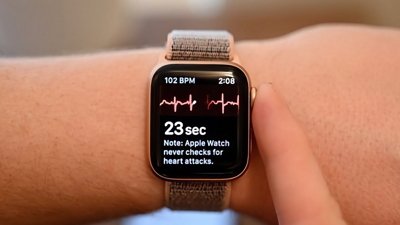Study: Apple's Siri more distracting to drivers than Google Now, better than Microsoft Cortana
As part of an ongoing study on the consequences of using hands- and eyes-free systems while driving, the AAA Foundation for Traffic Safety rated Apple's latest version of Siri voice control as "highly distracting," behind Google Now and certain OEM infotainment systems.
From in-house designs developed by car makers to tech industry solutions from Apple, Google and Microsoft, all systems evaluated in the recent AAA assessment were found to cause potentially dangerous levels of distraction. Even the top three performers, Chevy Equinox, Buick Lacrosse and Toyota 4Runner, were categorized as moderately distracting.
Researchers evaluated various hands-free systems by quantifying cognitive impairments demonstrated when issuing voice commands to make calls or change music while driving. Rankings were assigned on an ascending five-point scale split into "mild," "moderate," "high" and "very high" distraction classifications. A category 1 mental distractions equates to listening to music or an audio book, category 2 is equivalent to talking on the phone, while category 3 is similar to sending voice-activated texts. More profound impairments like spending mental effort on updating a social media account are classified as category 4, while category 5 distractions are designed to overload a driver's attention.
While all three smartphone solutions were categorized as highly distractive, Google Now proved least detrimental with a score of 3.0. Siri followed with a score of 3.4, while Cortana verged on "very high distraction" teritory at 3.8. These numbers jumped when it came time to send voice-activated texts, with Google Now rated as a category 3.3 distraction, while Siri and Cortana ranked as category 3.7 and 4.1 distractions, respectively.
"The lasting effects of mental distraction pose a hidden and pervasive danger that would likely come as a surprise to most drivers," said Peter Kissinger, President and CEO of the AAA Foundation for Traffic Safety. "The results indicate that motorists could miss stop signs, pedestrians and other vehicles while the mind is readjusting to the task of driving."
Overall, the study found that a driver can be mentally distractions for as long as 27 seconds after performing a hands-free task. Translated to a real-world scenario, a driver traveling at 25 MPH would travel the length of nearly three football fields before regaining full cognitive ability. On the other end of the spectrum, the least distracting systems tested caused impairment for more than 15 seconds after initiating a task, the study found.
AAA's results remain largely unchanged from evaluations performed last year in which Siri on iOS 7 was found to be highly distracting.
 Mikey Campbell
Mikey Campbell












 William Gallagher
William Gallagher
 Christine McKee
Christine McKee
 Michael Stroup
Michael Stroup
 William Gallagher and Mike Wuerthele
William Gallagher and Mike Wuerthele


 Chip Loder
Chip Loder
 Andrew Orr
Andrew Orr






